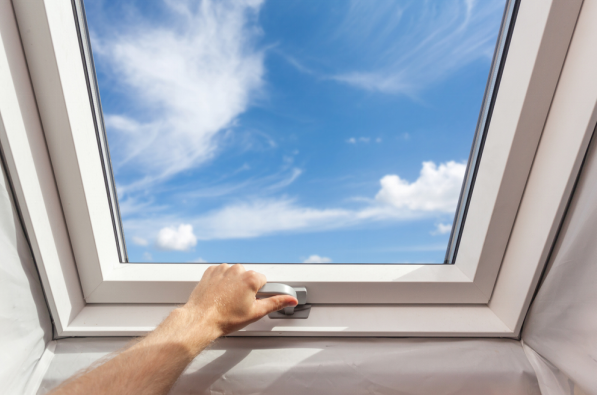Natural light brings illumination to a space that cannot be replicated by other types of lights. In addition to brightening the space, natural light can also provide our bodies with a healthy dose of Vitamin D. For homeowners who love natural light, there are a million and one ways to bring it into their living spaces.
One common way to take advantage of natural light is to install skylights. Skylights are great for rooms that are dim and excellent for hallways and foyers, which typically get little light. However, for those new to shopping for skylights, finding one that fits your budget and is perfect for your space can be time-consuming.
Let’s take a closer look at the different types of skylights available so that you can make the right choice for your home.

Skylight Models
Each one comes in a different shape – flat, arched, domed, and pyramid. They are usually made from plastic or glass and come with glazing either plastic or glass. Plastic glazing is more affordable and sturdy, but glass glazing lasts a long time.
Then, there are the different types of light that come into the home. Flared light, straight light, and shaft-less light are a few of the types available with each one working best for the shape and style of the room. The right choice will depend on whether there are obstructions in the way and the shape of the ceiling.
Homeowners have a few choices in skylights styles from which to choose. Fixed skylights can be installed in any room and are great for out-of-reach places. They come with plastic domes but do not provide any ventilation. Tubular skylights are great for hallways, pantries, foyers, closets, and other typically dimly lit spaces. Of the three types, these are supposed to be the easiest to install. It contains an adjustable reflective tube and fits into tight spaces.
Finally, there are the skylights that open up and provide ventilation. These work well in places where moisture collects in rooms, i.e. bathrooms, kitchens, and laundry rooms. This particular style also works with cathedral ceilings. The benefits to this style of skylight are that they can come with a remote control, and they are easier to clean.
Energy-Efficiency
The one feature of skylights that make them very attractive to consumers is that they are not only great ways to brighten spaces, but they are very energy efficient. When shopping for skylights, buyers should be aware of a few factors. If deciding to install a skylight, keep in mind that skylights that face north can provide much illumination without taking in or releasing too much heat.
Those that face south can provide your home extra warmth in the winter, but unfortunately, can cause your home to retain heat in the summer. Skylights that face east can provide more light and heat in the morning, while those that face west do the same thing in the afternoon. While ultimately the home’s floor plan will dictate where to place the skylight, homeowners should keep this in mind.
When looking for a skylight, shoppers should pay attention to a few things. First, skylights with the Energy Star label maximise efficiency to lower your utility bills. Features to look out for include heat-absorbing units, UV protection, and low-emissivity coatings, as these provide homeowners with energy efficiency while reducing the fading effect of the light let in on carpeting and other surfaces. A few models have motorised blinds to offset the glare at the brightest time of the day.
Guiding Light To The Right Skylight
Installing a skylight has to be one of the best ways to improve the look and value of your home. Natural light that enters into the space can really change the appearance of a room. More importantly, it can make your home more energy efficient while letting the light shine in.
